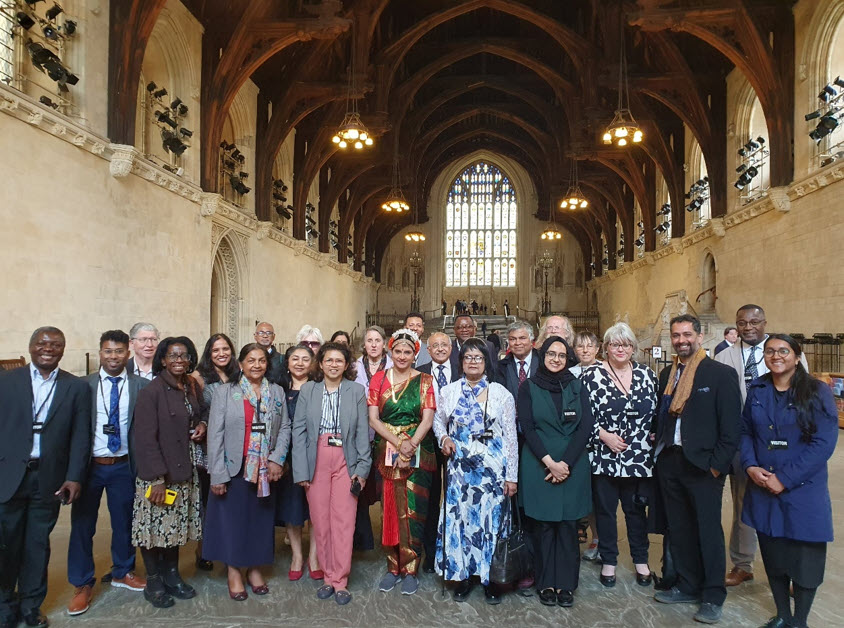At a special session at the House of Commons in England on 13 May 2024 entitled ‘The Commonwealth: where do we go from here’, a group of civil society activists originating from a number of Commonwealth countries, got together to provide meaningful insights into the future of the organisation coupled with a short cultural presentation.
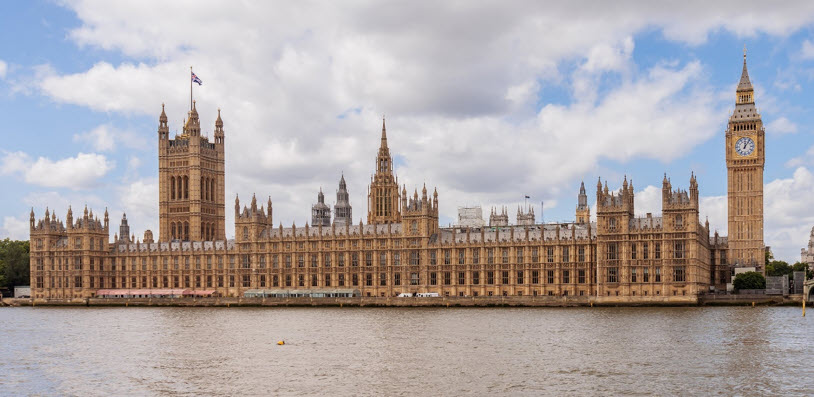
The event — spearheaded by Dr Sibani Roy, Chairman and Founder of Wales-based, Networking for World Awareness of Multicultural Integration (NWAMI) — was facilitated by the Rt Hon. David Jones, Member of Parliament for Clwyd West who chaired the opening part of the session. The event received support from the Trinidad-based Indo Caribbean Cultural Centre. Professor Soumitra Sen of India, in a virtual presentation, emphasised that in recent years the Commonwealth had had to deal with divisions caused by rising nationalism, growing inequality and rampant climate change. In order to reap benefits that were common, the organisation would need to promote greater understanding, foster innovation and enhance economic development. As many of the older generation were now passing away, Sen asked how their knowledge and experience was being transmitted to the newer generations and exhorted greater intergenerational collaboration with youth through appropriate digital platforms.
Sibani Roy then briefly outlined the work of NWAMI, emphasising its main aim being to extend its mission of integration by bringing people of the Commonwealth together through cultural exchange. Dr Ragasudha Vinjamuri, University Educator and Director of NWAMI presented captivating insights into the centuries-old migration of the Siddi community to India, how they amalgamated into the adopted society and spoke regional languages while retaining their own music and dance tradition. Dr Vinjamuri then presented a beautiful classical dance that conveyed the message of unity. The second part of the session, comprising presentations by five panellists was moderated by Rajan Singh Nazran, a British Indian explorer, journalist, and entrepreneur from the Global Indian Network.
The first presenter Maria-Gabriele Doublesin, Intercultural Community Counsellor and President of NWAMI International Malta, in her address entitled “Navigating Cultural Diversity-an Intercultural Integration Perspective” underscored the importance of being mindful of the homogenisation of culture and the subtle acts of institutional exclusion to the detriment of many. Drawing on her experience as a Community Counsellor and a Global Strategist she provided deeper insights into the cultural dynamics within the Commonwealth, highlighting the highly diversified nature of society of the small island nation state of Malta.
Dr Mohamed Keshavjee, International Specialist in Cross Cultural Mediation, in a thought-provoking address, asked how an organisation raised on the ashes of empire could be repurposed for the future. Among areas of reflection he cited the over-centralisation of Commonwealth activities in London and the possibility of relocating functions to various other parts of the Commonwealth, the ability to engage with the youth of many Commonwealth countries, the striking of more equitable trade deals and the engendering of a genuinely pluralistic commitment. Keshavjee cited positive assets to leverage this new vision such as the English language, the concept of the rule of law as the cornerstone of all our liberties and the positive role the Royal family could still play in cementing this new ethos.
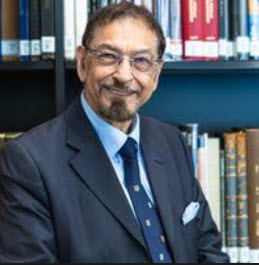
Jean Mfikela Samuel, Wales–based Motivational Speaker and artist from West Africa, highlighted the importance of nations harnessing the creative talent of artists, craftspersons, musicians, poets, dancers and others. This, he felt, was lacking at the present time and called for a cultural week for Commonwealth countries’ humanistic talent to get together to compete with, and complete, each other thus underscoring the relational nature of society. Such an endeavour, he felt, would make the Commonwealth known to its grassroots and vice versa.
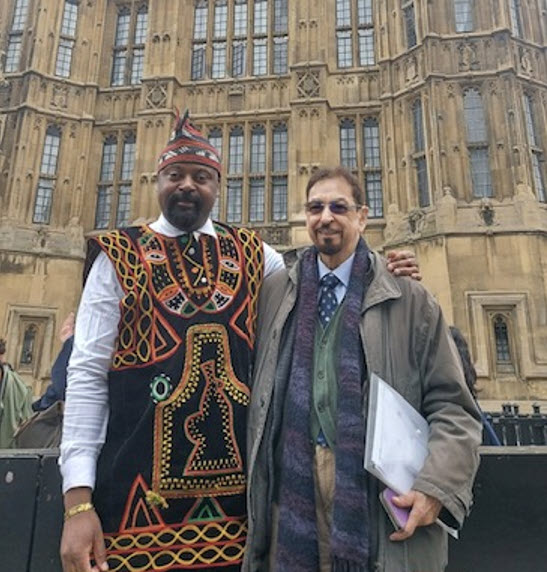
Dr Balasubramanyam Chandramohan, Senior Research Fellow at the Institute of Commonwealth Studies, London University, reminded the session that the idea of the Commonwealth can be traced back to Queen Victoria’s Proclamation of 1858 (India) emphasising that she would not discriminate between her people. Later developments, including the modern Commonwealth, tried to affirm this principle. Chandramohan cited Gandhi’s (later Mahatma) struggle in South Africa where he invoked this principle when he called on London to intervene in his struggle against racist legislation and practices. “This principle of non –discrimination” he felt “can be addressed now and in the future”.
Chandramohan stressed that the Commonwealth not being a treaty-based organisation was a strength in terms of the flexibility it affords. He strongly felt that nurturing intercultural competence by leveraging the vast range of cultures that students and others could bring to the UK was something to develop through the support of various politicians and members of parliament attending the session.
James Boston, Founder of the Association of Former British Colonies, and advocate of Reparatory Justice and Greater Autonomy highlighted that the future of the Commonwealth rests very much on its readiness to confront historical realities with integrity and to acknowledge past injustices with a view to fostering greater inclusivity, mutual respect and equity. Boston stated that the new Commonwealth will need to engage with members calling for reparatory justice, greater autonomy and the return of cultural artefacts which they feel was looted from them. Only then would it become a ‘beacon of hope’ contributing to the healing process.
In his summing up Rajan Nazran reiterated that the new Commonwealth needs to enhance the collective wealth and lived experience of all its diverse members. “At present it only benefits a select few, undermining the very ideal of equality among nations.”
The afternoon’s constructive analysis highlighted the value and impact of capacity building in the new Commonwealth.
Civil society actors and Private Initiatives have demonstrated their value in this regard. The role of the Aga Khan Development Network (AKDN) as a catalyst in social, cultural and economic domains in 18 member states of the Commonwealth on five continents attests to this. Programmes and activities include schools, university campuses, hospitals, rural and urban revitalisation initiatives and development –oriented investments in for-profit sectors of national priority.
The Network’s Founder and Chairman, The Aga Khan, who is Global Founding patron of the King’s Trust International, is also one of the two Vice Presidents of the Royal Commonwealth Society, the other being the Rt. Hon Patricia Scotland QC Secretary General of the Commonwealth.
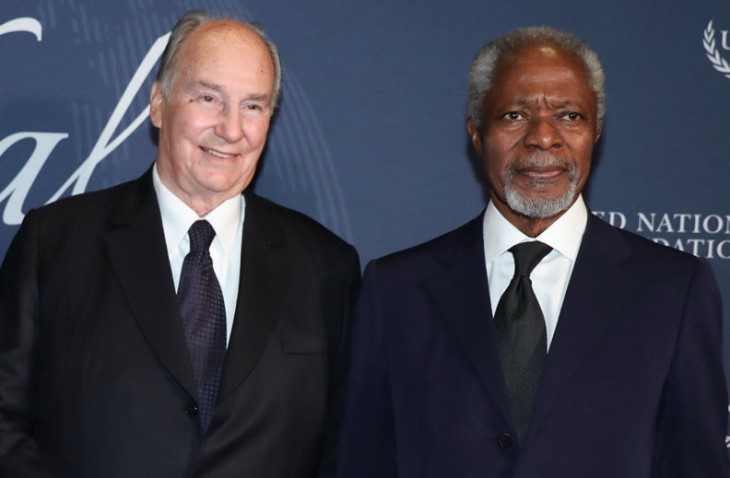
With historic links going back over a century the AKDN could provide the ‘beacon of hope’ that Boston mentioned and to which many speakers alluded in this session. The event ended with a beautiful rendition of a Welsh song by Amruta Garud, tutor from Wales College of Music and Drama which was a fusion of an Indian raga and a Welsh song highlighting the fact that cultures usually speak to each other with great spontaneity and ease in the service of a common humanity.
